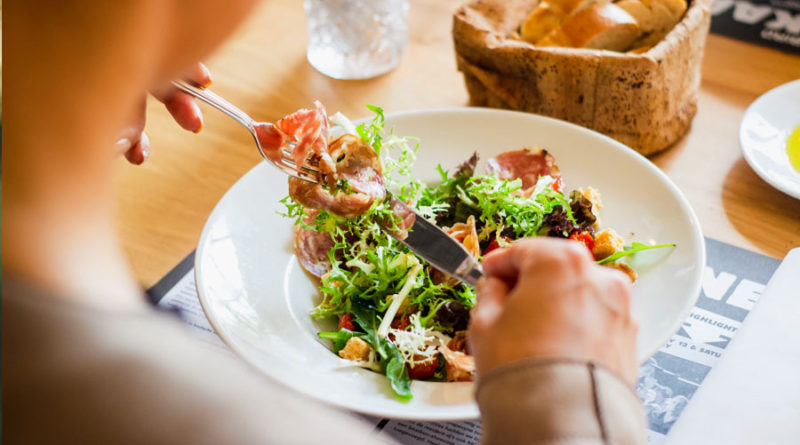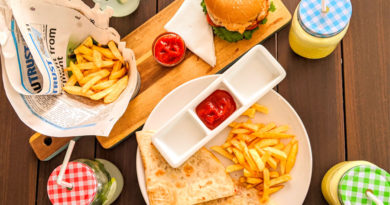Diet Tips Debunked
Research efforts reveal that when you increase the amount of vegetable and fruits you eat while reducing the amounts of processed foods and meat– your weight will definitely decline and you get to maintain that loss.
The main premise of going for vegetables and fruits is that you stay satisfied because the amount of food that you eat remains constant, while the level of calories you eat drops (which also makes weight drop). There is the extra benefit of gaining more nutrients because you are eating vegetables and fruits.
Diet tips and programs that have no substantial basis to them make up most of the diet tips you may watch on TV or read in magazines or links that are bravely entitled “Lose 10 pounds in seven days!”
Listed below are some of the diet tips and programs that tend to do more harm than good:
- Do juice fasts, detoxes or cleanses: Yes, in the short term, this will help you lose weight because you’ve simply stopped eating. However, it will make you irritable. Also, your body also has natural detoxification machines of its own: the liver, kidneys, and digestive system. If you want to lose weight, there’s no need to “cleanse”.
- Follow a Gluten-Free diet: Carbohydrates is actually the culprit that’s making you fat, not gluten. Cut out the bad carbs (see number 4) if you’re serious about losing weight.
- Avoid all added sugar: Sure, like do that for ten or even just for five minutes and we’ll see if avoiding that chocolate bar or cake on the fridge adds raises the quality of your life.
- Cut out all your carbs: six months ago, my friend joyfully told me the news of how she lost 20 pounds by cutting out carbs in her diet. She indeed looked slimmer then. But when I recently visited her, she had put it back on. While you need to refrain from eating bad carbs (white bread, white rice, cookies) and large quantities of carbohydrates, it is essential that you eat the good carbs (of course, in moderation) like fruits, beans, and whole grains. Our bodies absolutely require carbs to be healthy.
- Be a Vegan: Well even if you’re only following a vegan diet to lose weight, and not as a lifestyle decision, meats such as poultry and beef (even combined with onion rings, cheddar cheese, and bacon) provide essential nutrition when eaten in moderate amounts and are needed by the body. If you plan to permanently stop eating meat, try reducing your consumption of meat gradually.
- Sugar-free and Fat-Free is the only way to lose weight: Most sugar-free and fat-free foods are loaded with preservatives and artificial ingredients to make them taste like fat and sugar. If you follow this diet, choose products that have naturally less fat and sugar.
- Fruit makes you fat: This is a LOL advice. Cookies make you fat, fruits don’t. In fact, fruits are rich in nutrients, water, and fiber. Show me a person that got fat eating fruits and I’ll show you a liar.
- Follow a paleo diet: This diet involves eating foods that our ancient ancestors ate. This diet bans processed food, preservatives, legumes, grains, vegetable oil, dairy, and wheat and includes coconut oil, ghee, kefir, nut milks, berries, seeds, nuts, seafood, spices and herbs, plant foods, and grass-fed meat. Besides being expensive, a paleo diet restricts or omits a number of food groups that provide vital nutrients such as starchy vegetables, fruit, and whole grains. It also involves the use of lots of coconut oil and current studies do not support coconut oil use as the preferred source of fat.
- Ketogenic diet: This type of diet is a low-carb, high-fat diet that generates a metabolic process known as ketosis that happens when the body has insufficient amounts of glucose for energy and starts to gets its energy by breaking down stored fats. While the Ketogenic diet is ideal for treating epilepsy and has shown some promise in addressing obesity, it is neither an easy nor a pleasant diet to follow. It also does not address salt intake and promotes the eating of high saturated fat. For people with heart disease or gout, this diet is not recommended.
- Exercising while you’re hungry helps you lose weight faster: Actually the number of calories you burn does not depend on the emptiness or fullness of your belly. According to a study seen in the Strength and Conditioning Journal, you actually do more harm than good to your body if you work out in an empty stomach. The study showed that skipping meals prior to exercising leads to muscle loss.
When it comes to drinks during workouts health experts believe that choosing naturally sweet fruit like mangoes, peaches, or bananas is much better than gulping down a sports drink. This is because fruits have no artificial additives that can be harmful to your health unlike sports drink that have such ingredients.



